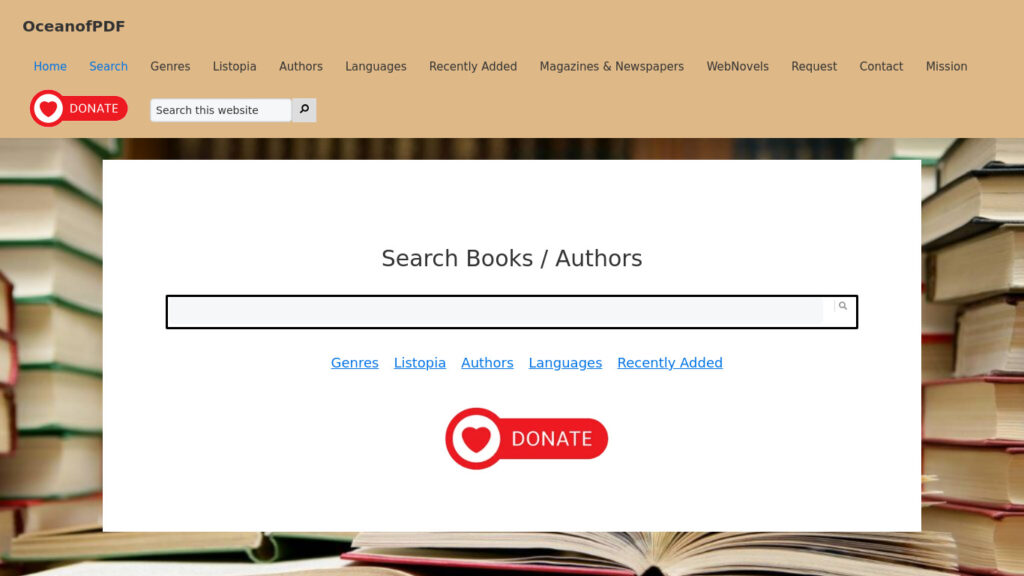In the ever-evolving landscape of digital content, platforms that offer free access to copyrighted material have always been a subject of controversy. One such platform that has garnered significant attention in recent years is OceanofPDF. Marketed as a repository for free ebooks across various genres, OceanofPDF has become a hotspot for readers seeking cost-free access to a wide range of literary works. However, the ethical implications surrounding the platform have sparked debates about copyright infringement, intellectual property rights, and the impact on authors and publishers.
The Rise of OceanofPDF
OceanofPDF emerged on the digital scene as a seemingly harmless website, claiming to provide users with a vast collection of ebooks without any charges. The platform gained popularity due to its user-friendly interface and the promise of an extensive library, attracting book enthusiasts who sought an alternative to traditional paid ebook platforms. The ease of access to a plethora of titles, including bestsellers and niche genres, contributed to the platform’s rapid growth.
Copyright Infringement Concerns
The primary concern surrounding OceanofPDF revolves around copyright infringement. Many of the ebooks available on the platform are copyrighted works, and their distribution without proper authorization raises legal and ethical questions. Authors and publishers invest time, effort, and resources in creating and promoting their works, and the unauthorized distribution of these works undermines the very foundation of intellectual property rights.
Authors and Publishers’ Perspective
From the standpoint of authors and publishers, OceanofPDF poses a direct threat to their livelihoods. The unauthorized distribution of ebooks through the platform results in a loss of potential sales and royalties. This impact is particularly significant for independent authors and smaller publishing houses that heavily rely on book sales for sustainability. The rise of piracy through platforms like OceanofPDF has sparked a growing movement within the literary community to raise awareness about the consequences of piracy on the creative industry.
Legal Actions Taken
The ethical implications of OceanofPDF’s operations have not gone unnoticed by the legal authorities and copyright holders. In response to copyright infringement complaints, legal actions have been taken against the platform, leading to its periodic shutdowns and domain changes. However, the nature of the internet allows such platforms to re-emerge under different names and addresses, making it challenging for legal authorities to permanently eradicate the issue.
Impact on the Publishing Industry
The existence of platforms like OceanofPDF has broader implications for the publishing industry as a whole. The potential loss of revenue due to unauthorized distribution hampers the industry’s ability to invest in new talent, diverse voices, and innovative projects. Publishers, faced with the threat of piracy, may become more cautious in taking risks on emerging authors, limiting the diversity and richness of available literary works.
Consumer Perspective
While some readers may view OceanofPDF as a convenient way to access literature without the financial burden, it is essential to consider the long-term consequences of supporting such platforms. By choosing free alternatives over legitimate paid options, readers indirectly contribute to the devaluation of creative works and hinder the sustainability of the publishing industry.
Alternatives to OceanofPDF
The ethical concerns associated with OceanofPDF prompt readers to explore legitimate alternatives for accessing ebooks. Numerous platforms offer affordable subscription services, libraries, and promotional deals that support authors and publishers while providing readers with a diverse range of titles. Supporting these legal alternatives ensures that the creative industry continues to thrive and produce high-quality content.
Conclusion
OceanofPDF, despite its initial appeal as a free ebook repository, stands at the center of a contentious debate surrounding copyright infringement and ethical considerations. As readers, authors, and publishers grapple with the consequences of piracy, it is crucial to acknowledge the impact of our choices on the creative ecosystem. Moving forward, promoting awareness about the importance of intellectual property rights and supporting legitimate platforms will be essential to preserving the vitality of the publishing industry in the digital age.







